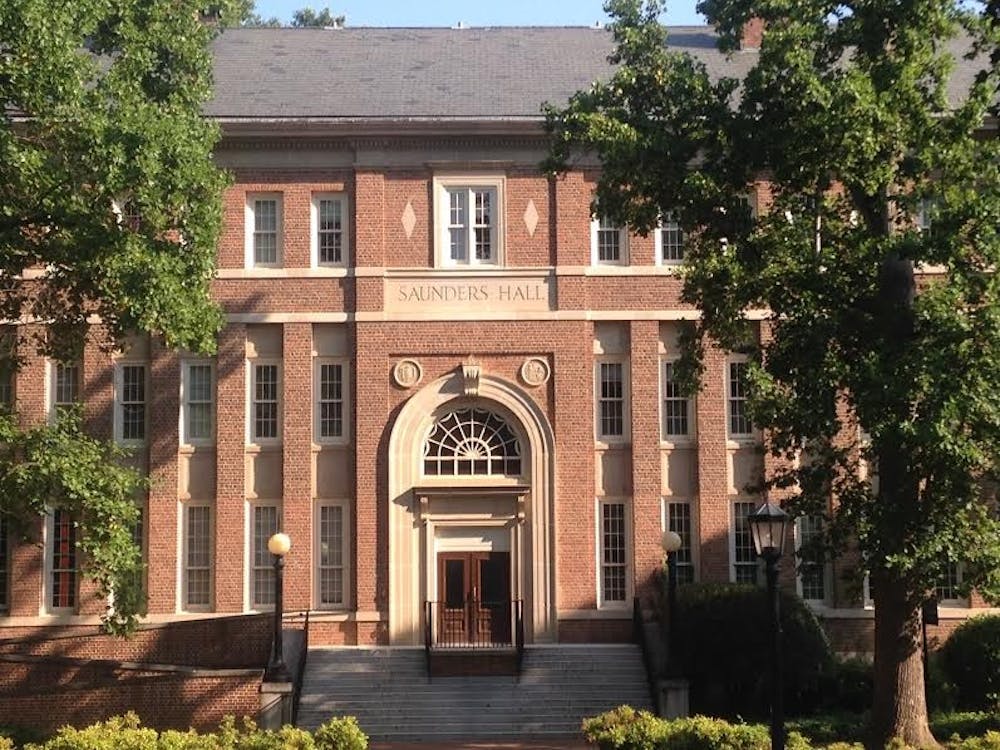The Board of Trustees at the University of North Carolina at Chapel Hill renamed an academic building originally named for a Ku Klux Klan member and announced a 16-year freeze on discussions about building name changes at its meeting May 28.
The building was previously named for William L. Saunders—a man with known KKK affiliations—and will be renamed Carolina Hall. The Board of Trustees addressed the naming issue in response to the demands of the Real Silent Sam Coalition, a student group that requested the hall be renamed Hurston Hall as a tribute to African-American writer Zora Neale Hurston—who took classes at UNC but was denied official student status because of her race. The Board announced it will institute a marker to commemorate the building’s history, as well as investigate new ways of explaining campus history to new students, faculty and staff.
The 16-year freeze is intended to allow time for these initiatives to take place, said Chuck Duckett, a member of the Board.
"It's going to take time to curate every one of the buildings just to make sure that we're correct, assemble all this information and put it in a place that's accessible for everybody—not hidden on the sixth page of the website," Duckett said.
The decision comes almost a year after Duke's Board of Trustees announced it would rename a residence hall which bore the name of Charles Aycock, a white supremacist leader.
UNC also has a residence hall named after Aycock, but Duckett said the Board of Trustees has no plans to reconsider that name because Aycock's name was chosen for his public education efforts throughout the state.
Carolina's Board of Trustees reviewed the minutes from the meeting in which the members of the Board chose to name the building after Saunders. The minutes, which were approved by the 1920 Board, cited Saunders' position as head of the KKK as one of the major attributes for naming the building in his honor.
"I don't understand why Duke took the name Aycock down—I get it—it's a politically expedient thing to do in today's environment, but that's not why we took Saunders down," he said. "We took Saunders down because of the actions of the University probably more so than the actions of the man."
Despite the Board’s decision to rename the hall and institute historical markers, several UNC students disagreed with the decision.
Ishmael Bishop, a UNC senior and member of the Real Silent Sam Coalition, noted that the renaming initiative has been a topic of discussion for several years, though it rose to prominence this year. He said the Board's choice to rename the building Carolina Hall failed to take into account the history of marginalized students.
“Unification efforts to have one cohesive Carolina really just streamlined a process with students who are marginalized," Bishop said. "[These students] continue to be marginalized and do not fit this unification project."
Duckett, however, said the new name is intended to serve as a symbol of inclusiveness. He said the Board did not consider Hurston for very long because they felt she did not have as significant an impact as others who could have been chosen.
"There are hundreds of people who this building could be named after in front of [Hurston]," he said. "You want to honor people who have been important to the state and university and there are other people who have been more important to the University than her."
The timing of the announcement was described as a "cop-out" by UNC sophomore Sahana Raghunathan, who noted there were not many students on campus to protest the decision.
"There were a few things that were very problematic and emblematic of the fact that they never intended to take us seriously,” Bishop said. “When they named the building Carolina Hall, it was utter ridiculousness.”
Both Bishop and Raghunathan noted that despite the resolution, the Board could still change its decision on the naming freeze before the end of the 16-year period. There are also numerous other entities that student activists can make a case to, including the Board of Governors, Bishop said.
"The decision won’t stop student activism on campus," Raghunathan said. "If...enough people want to get something accomplished, they will do it."
Get The Chronicle straight to your inbox
Signup for our weekly newsletter. Cancel at any time.

